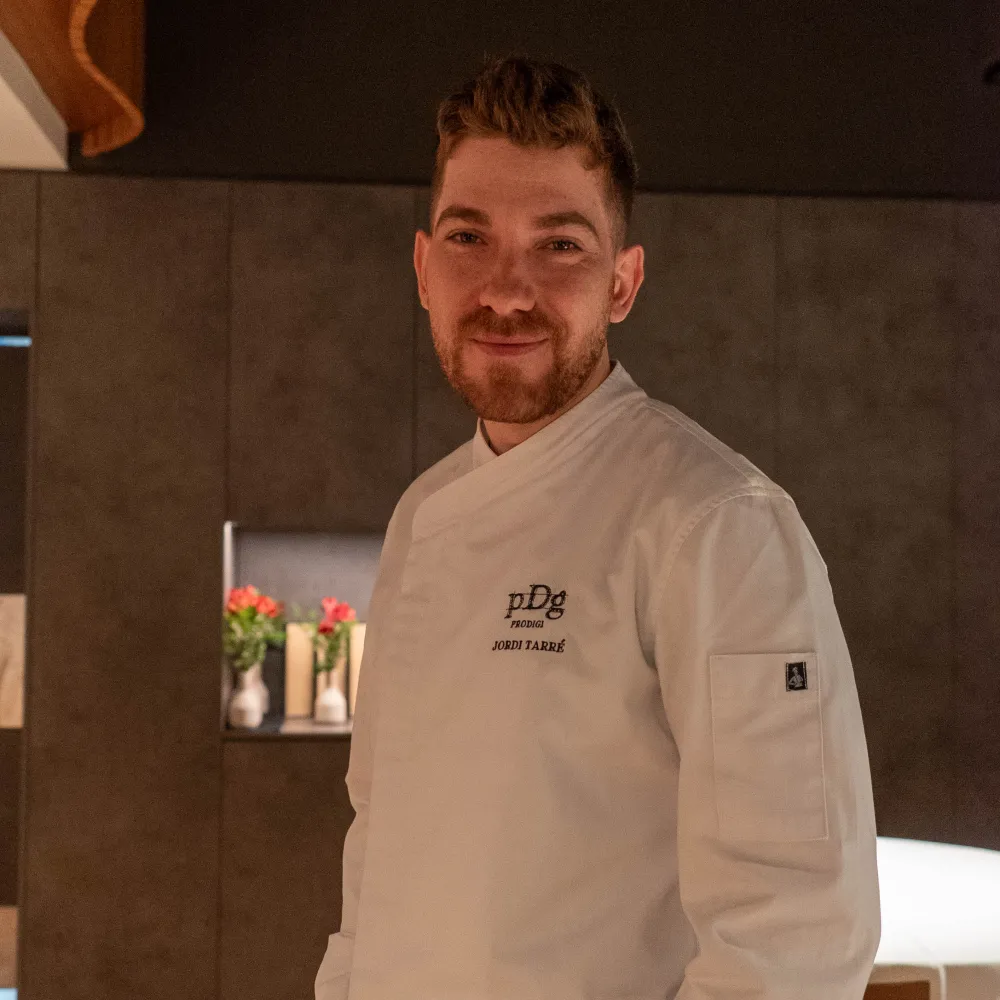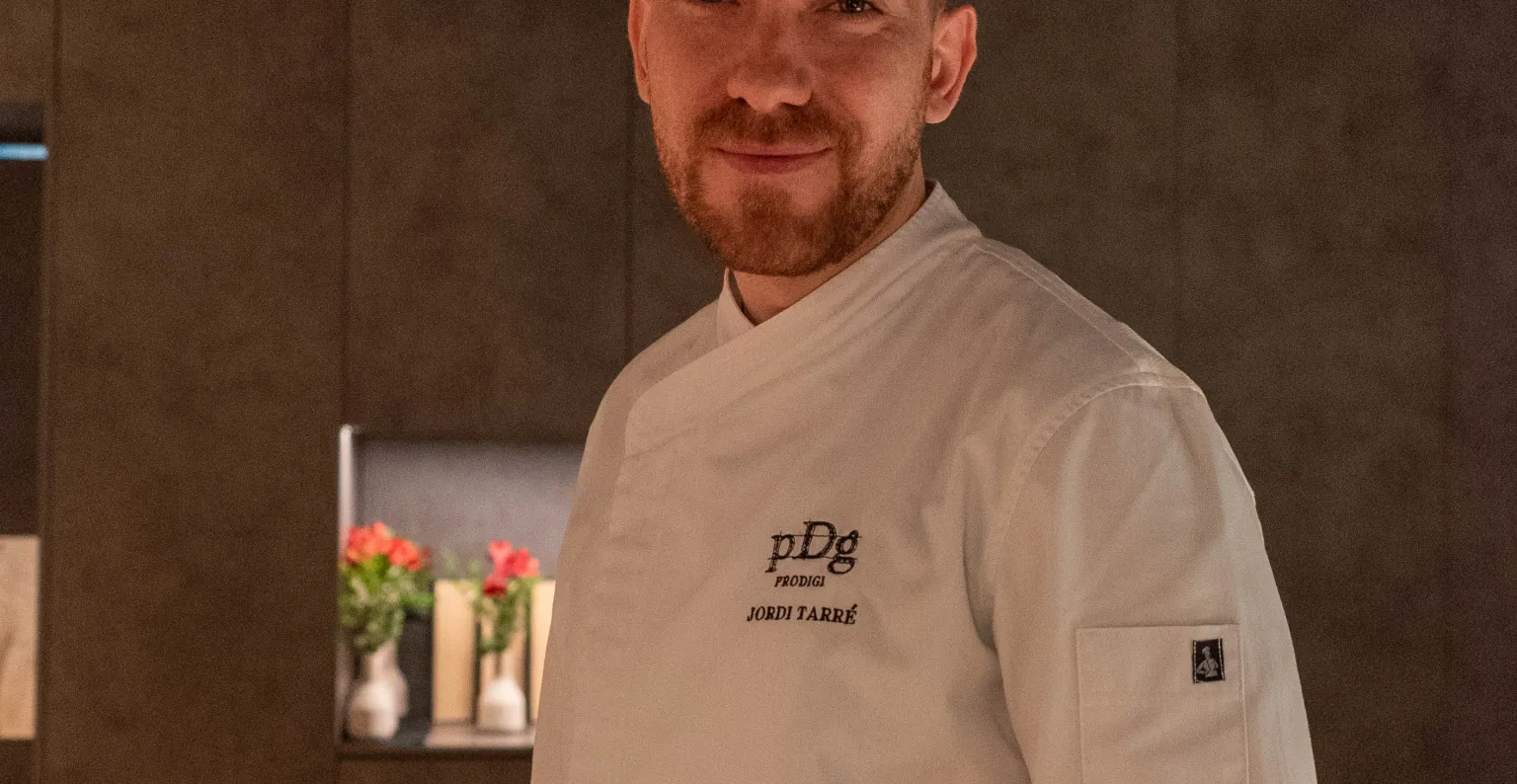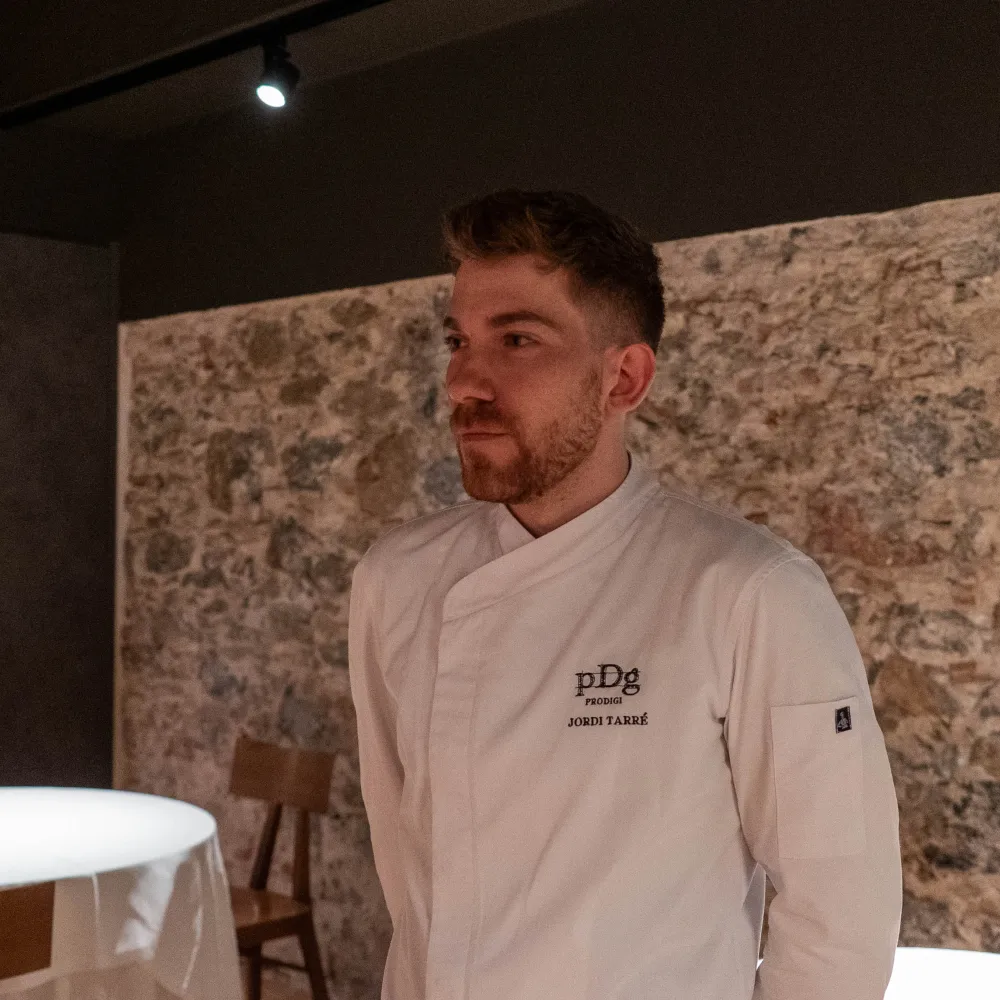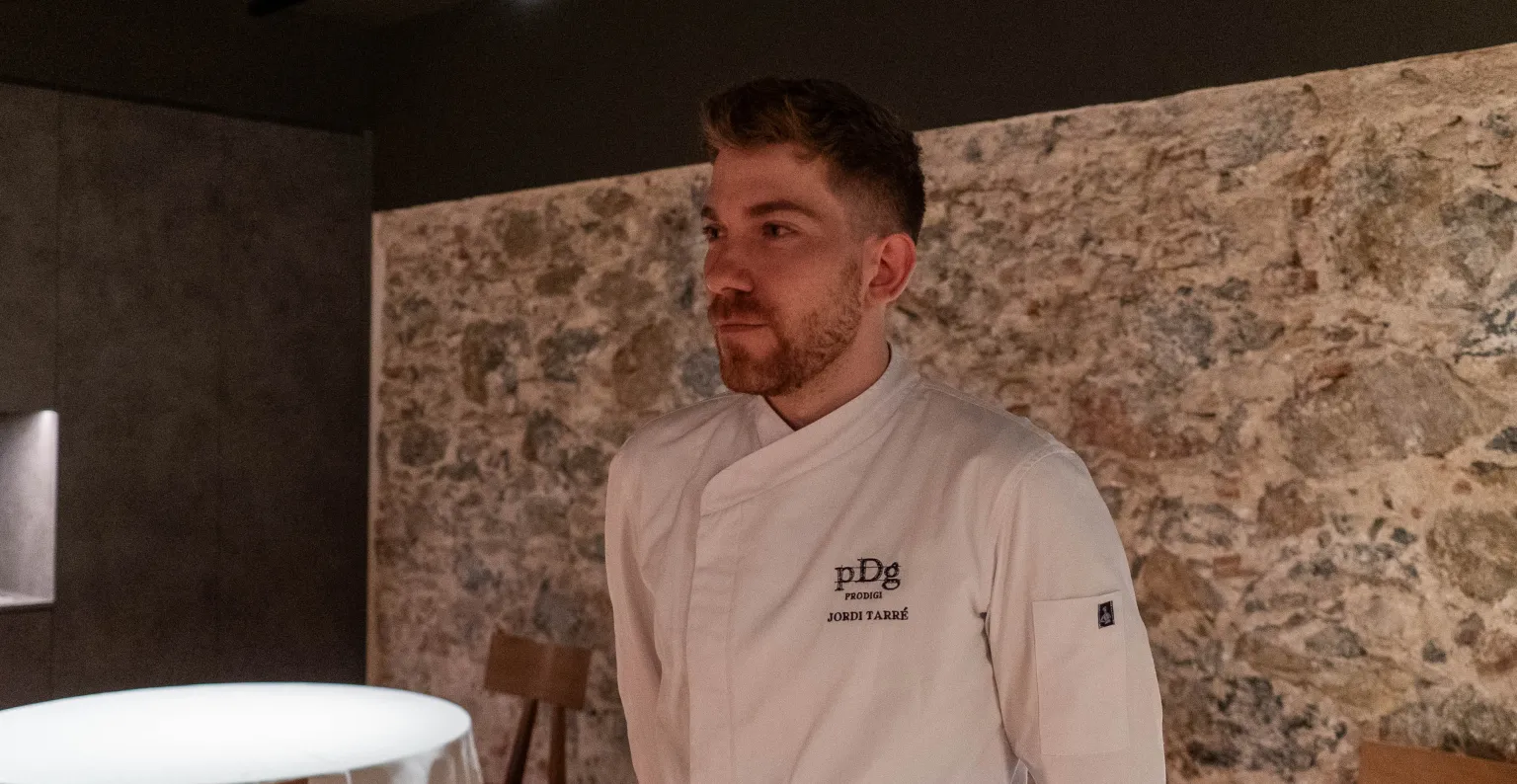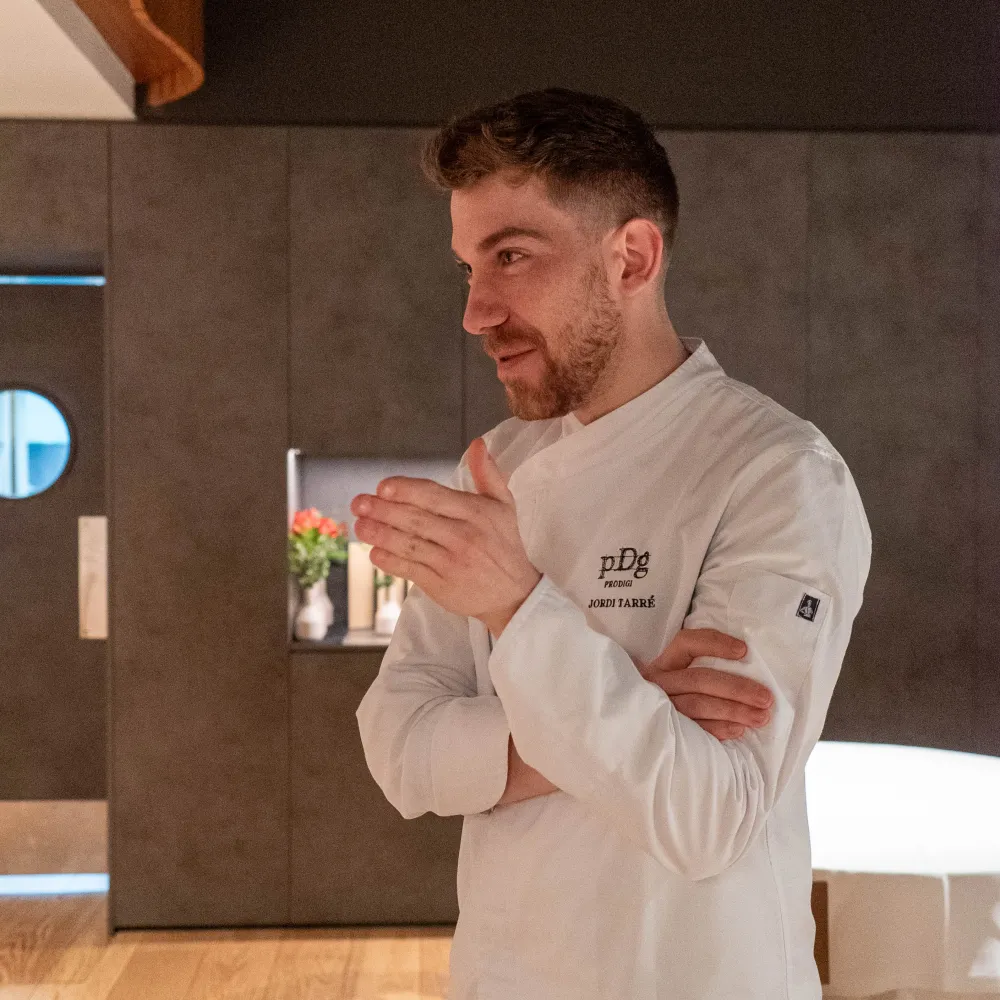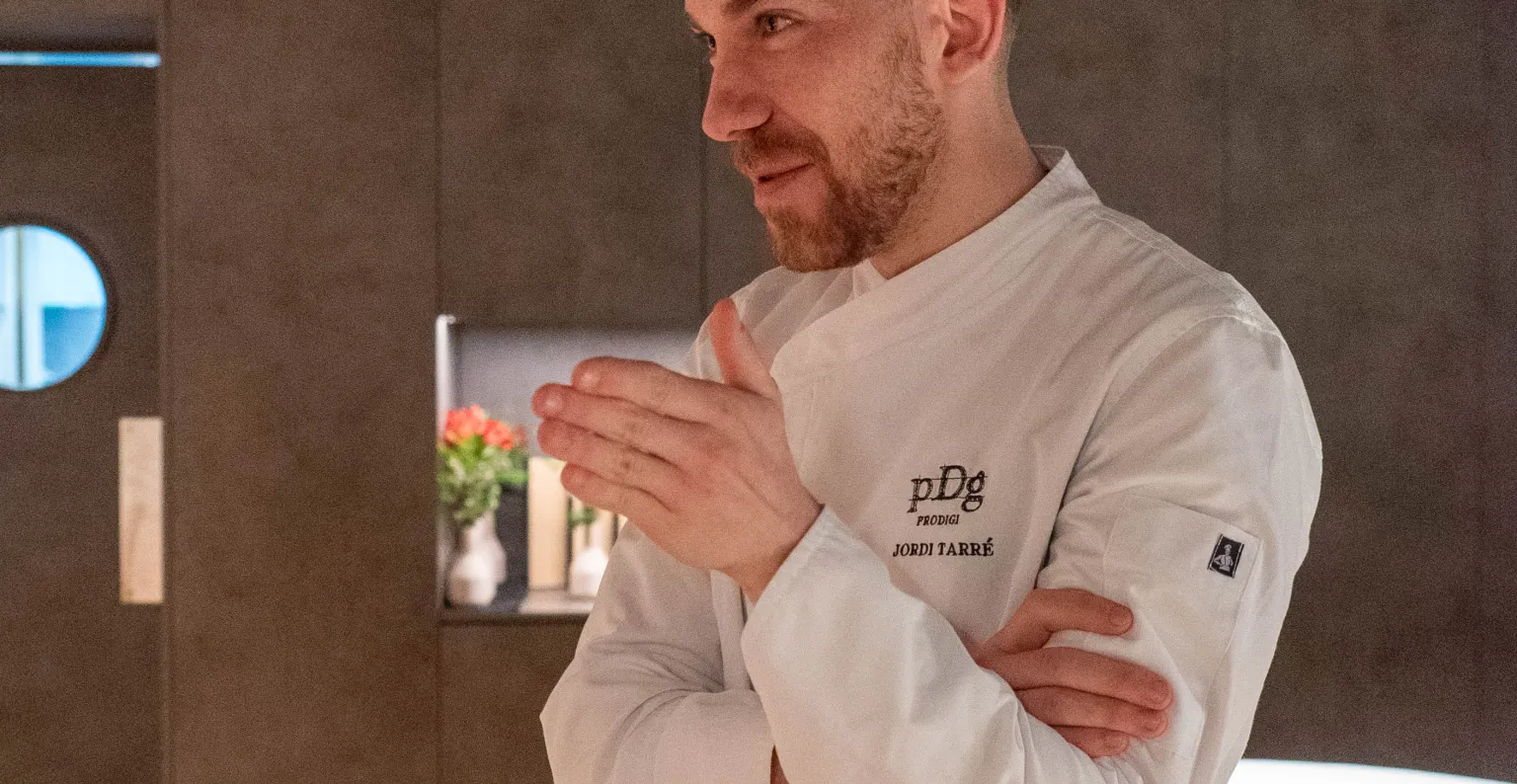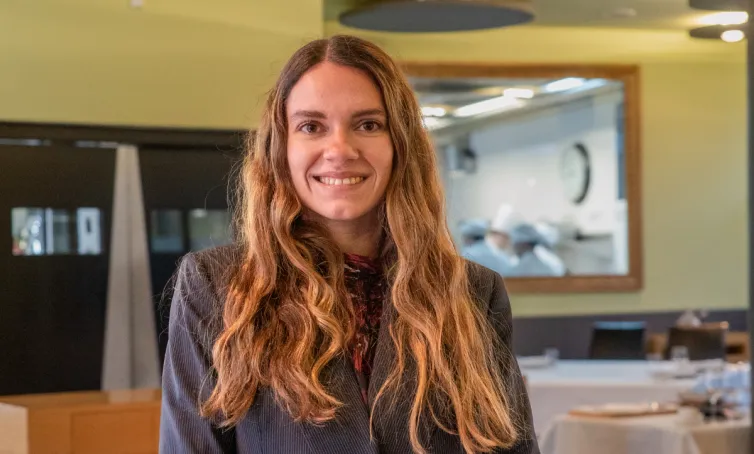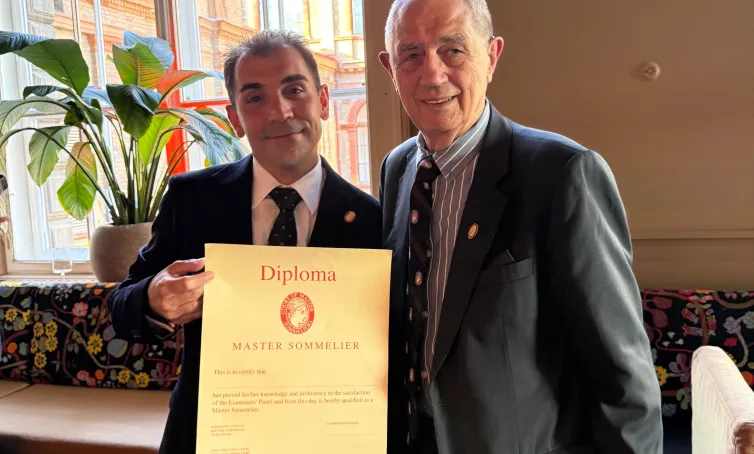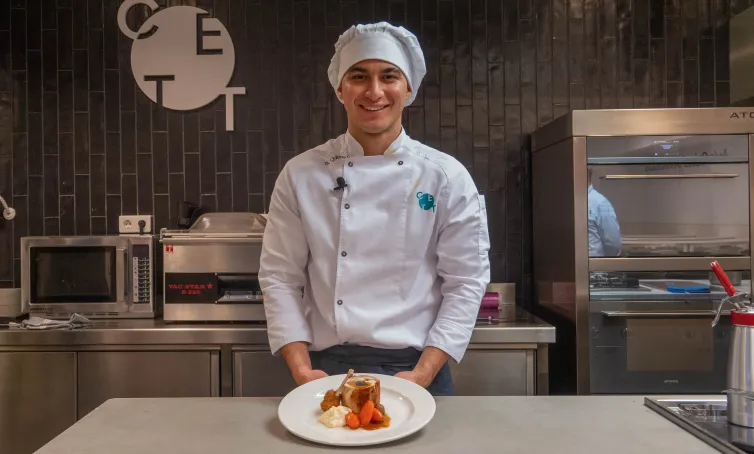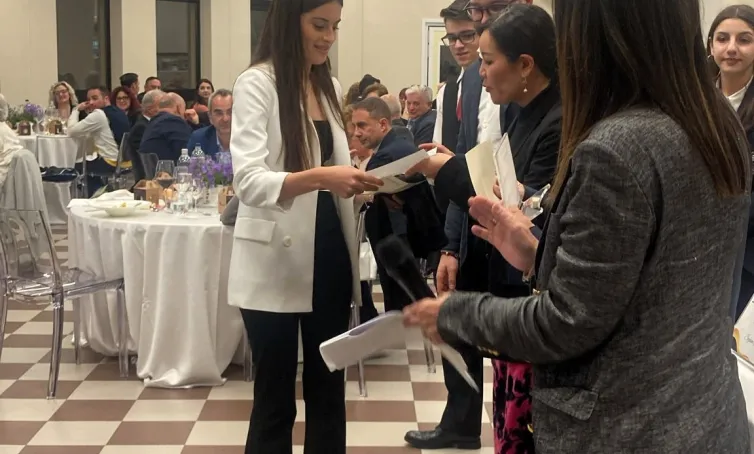Jordi Tarré, CETT Alumni and Michelin star Chef: “A gastronomic experience can be surprising without fireworks”
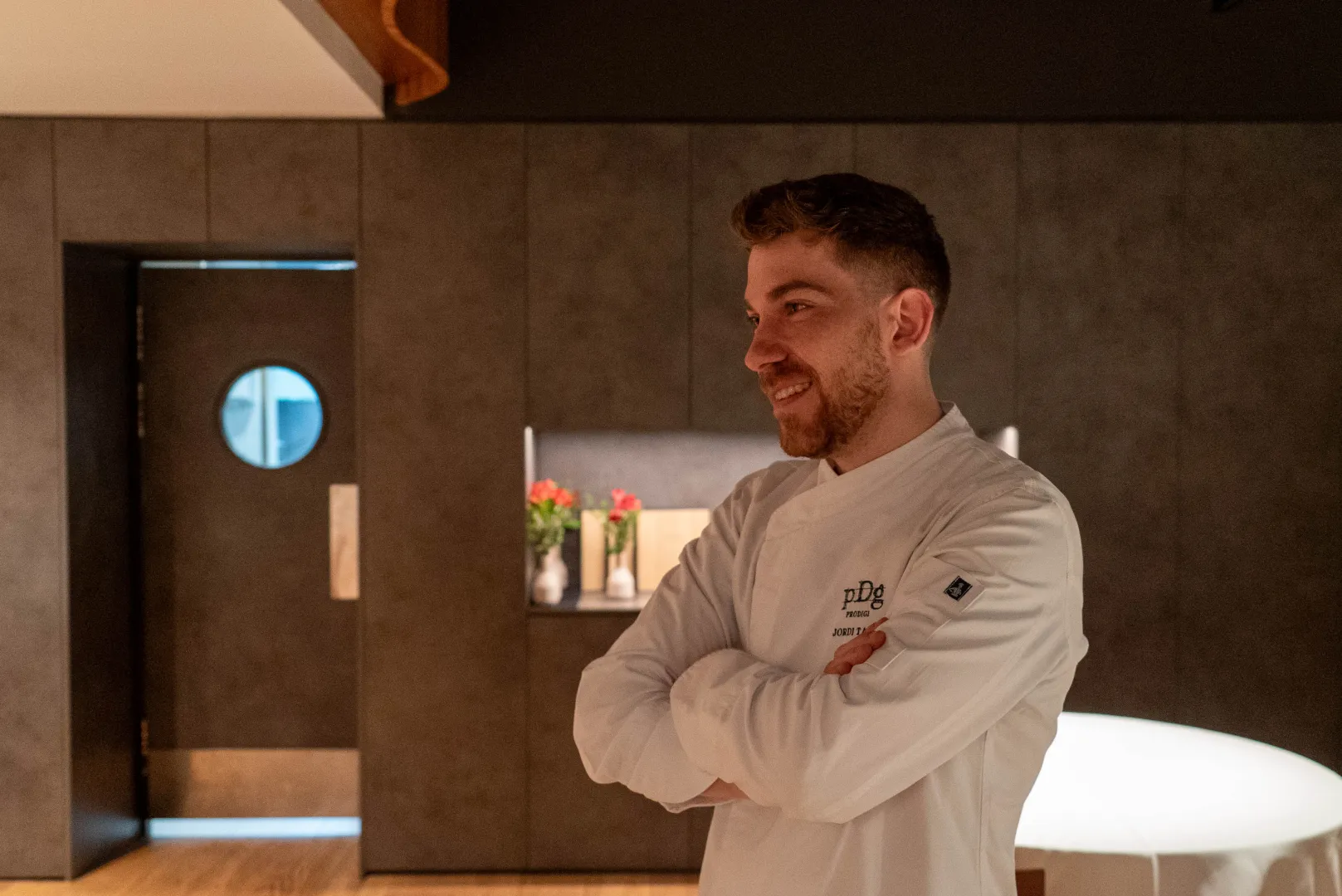
We speak with CETT Alumni and Michelin-starred chef Jordi Tarré to explore his culinary vision at Restaurant Prodigi.
Jordi Tarré, a 29-year-old chef and CETT graduate, is the founder, owner, and head chef of Prodigi, a restaurant located in Barcelona recently recognised with a Michelin Star. His gastronomic concept stands out for combining simplicity and sophistication, rooted in Catalan culinary tradition with a contemporary outlook.
Trained at CETT through the Technician in Culinary Arts, Gastronomy and Restaurant Services and the Higher Technician in Kitchen Management, Tarré began his professional journey at the age of fifteen. During his training, he worked in renowned kitchens such as Nectari, Hisop, and El Celler de Can Roca. He later expanded his international experience in London, working at acclaimed establishments such as The Fat Duck, Mandarin Oriental Hyde Park, and Ametsa with Arzak Instructions.
Upon returning to Barcelona, he joined Hisop as sous-chef, a key step that paved the way for the creation of Prodigi. In this interview, Tarré reflects on his career, the value of education, and the principles that shape his culinary philosophy.
-
Prodigi embraces the value of simplicity and sophistication through a modern creative journey. How does it do that?
Prodigi is a project built on memories, experiences, and roots. We’ve always wanted to experiment with innovation and simplicity — to follow a path where traditional cuisine coexists with contemporary techniques, without losing our origins.
Today’s cuisine is increasingly creative and technical, and I think in this context it’s essential to remember that more is not always better. In fact, something that looks simple or unpretentious can involve a lot of hard work. The message we want to convey through Prodigi is that a gastronomic experience can be surprising without special effects.
-
Roots, memories, experiences… and now a Michelin Star. How have you experienced this milestone? What makes Prodigi a Michelin-starred restaurant?
All I can say is that, since the day we opened, we’ve focused on doing things better each year. It’s a long-distance race. You have to keep improving, have enough humility to recognize what you’re still not doing well, and always be open to learning. You need to keep your feet on the ground, your head in the sky — and among the stars — and dream a lot, because that’s ultimately the most important thing.
-
The restaurant pays tribute to Catalan cuisine. What would you highlight about our culinary tradition, especially in this year when Catalonia is the World Region of Gastronomy?
Catalan cuisine has fundamental bases and stocks that other cultures don’t. I’ve never imagined Prodigi starting from anywhere else. I’ve lived abroad and been influenced by many different cuisines, but the flavors that feel like home are Catalan: my mother’s sofritos, reductions, bold flavors … A project this personal has to be rooted in those foundations.
-
What qualities should a good chef have today?
Wow, that’s a big question… A good chef needs discipline, a strong desire to learn, humility, and above all, motivation to keep going one step further. They must have constant curiosity and the drive to improve. And, most importantly, they must cook with care — the guests notice it.
-
Is a chef born or made? How has your training helped you in your career?
You’re made — 95% of it, at least. The first and most essential step is training. Then you have to learn in the kitchen, be self-taught, work in different restaurants, and grow professionally. You need solid foundations, knowledge, practice, commitment, the desire to learn, dedication, and the ability to listen.
-
Could you share what you took away from your training at CETT Campus?
CETT was the first step — the beginning. It gave me the tools to start understanding this world, the opportunities it offers, and the career path I needed. I encourage everyone to pursue formal training. Study programs are constantly evolving and improving. Of course, cooking requires a lot of hands-on experience, but those first years of education help you build solid foundations, make mistakes, and experiment before entering the professional world.
-
What advice would you give someone who wants to pursue fine dining?
Firstly, I’d recommend not starting with fine dining — start with cooking. There are many paths within gastronomy, and not everything is about haute cuisine or Michelin-starred restaurants. You need to reflect on three things: what drives you, where you feel comfortable, and what you're good at. If someone is interested in fine dining, they should first explore, test, and gain experience in “everyday” cooking.
I haven’t always worked in fine dining. I worked in a rotisserie, a bakery, various restaurants… I tried many things until I found the type of cuisine I loved. You have to be open-minded — gastronomy is diverse and offers many opportunities. Ideally, each person should understand their strengths and find the best environment to grow in.
